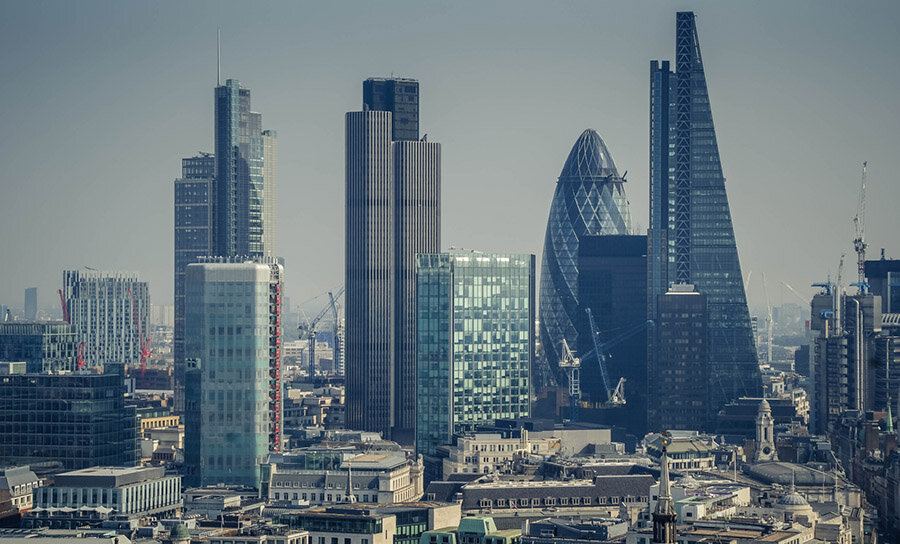read also
 Sweden Urges Citizens to Hold Cash for Emergencies
Sweden Urges Citizens to Hold Cash for Emergencies
 Indonesia Faces Growing Credit Rating Pressure
Indonesia Faces Growing Credit Rating Pressure
 Poland Rethinks Rate Cuts as Iran War Risks Rise
Poland Rethinks Rate Cuts as Iran War Risks Rise
 UAE Airport Losses Reach One Million Dollars Per Minute
UAE Airport Losses Reach One Million Dollars Per Minute
 UAE Housing Market Enters Moderate Cooling Phase
UAE Housing Market Enters Moderate Cooling Phase
 How Georgia Supports Its Economy and Investments in Times of Crisis
How Georgia Supports Its Economy and Investments in Times of Crisis
London Housing Prices Are Declining: New Market Perspectives

London’s real estate market has undergone significant changes in recent months, with one of the most noticeable trends being the decline in housing prices. Economic instability, high inflation, and rising interest rates have affected buyers' purchasing power, writes Bloomberg, citing data from the UK Office for National Statistics.
Many potential buyers are postponing property purchases due to concerns over rising mortgage costs. This is leading to lower demand, which in turn is forcing sellers to reduce prices. As a result, the average home price in London fell by 2.7% in real terms in December 2024 compared to the same period in 2023, reaching £549,000 ($692,000).
Luxury Market Hit Hardest
The situation is even more dramatic in London’s most prestigious neighborhoods. In Kensington, Chelsea, and Westminster, property prices have plunged by more than 20%, dropping to £1.07 million and £868,000 ($1.3 million and $1.1 million), respectively. The last time such a sharp decline was recorded was during the global financial crisis.
London remains the most expensive property market in the UK, driven by a chronic housing shortage and historically strong demand. However, the market is now under pressure due to rising mortgage rates and increasing living costs.
According to Jonathan Hopper, CEO of Garrington Property Finders, after the post-lockdown "race for space," the price gap between London and the rest of the UK is no longer as pronounced as before. Part of the decline is attributed to the "whiplash effect" caused by tax hikes introduced in the October budget, which hit confidence in the high-end property market.
Fewer Profits for Home Sellers
In 2024, only 25% of London home sellers had bought and sold their property within five years, compared to 34% nationwide.
The average profit for London home sellers fell to £172,350 ($223,000), which is £32,000 ($41,500) less than in 2023. This marks the first time in nine years that the average home sale profit in the capital has dropped below £200,000 ($259,000).
A Mixed Picture for Investors and Renters
Lower prices may be beneficial for first-time buyers, but they reduce London’s appeal to investors. Adding to the uncertainty, rental growth is slowing down.
In January 2025, London’s rental prices increased by just 0.3%, marking the slowest monthly rise since October 2022.
Annually, rents were still up 11%, but signs of a cooling market are evident.
According to Alex Bloxham, Partner and Head of Residential Lettings at Bidwells, the slowdown is linked to economic uncertainty and changing landlord behavior. Many property owners are choosing to sell rather than rent, partly due to:
- Higher mortgage costs
- Labour Party proposals to ban "no-fault evictions"
- Tighter environmental regulations for landlords
Toby Leek, President of Propertymark, believes that London’s rental market may have peaked. Slower rent growth reflects both affordability pressures and broader economic factors.
UK Housing Market Faces Broader Challenges
Across the UK, demand for housing slowed in January 2025, largely due to soaring mortgage costs, according to RICS.
However, Halifax reported that UK house prices still reached record highs at the start of 2025, as buyers rushed to take advantage of tax breaks before stamp duty increases.
- In January 2025, the average UK home price rose to £299,138 ($371,810), up 0.7% from December.
- Annual growth stood at just 3%—the slowest since July.
Meanwhile, the PMI housing index has been declining for seven consecutive months, indicating continued challenges in the construction sector. Despite the short-term market weakness, experts predict:
- UK house prices may rise by 3% in 2025 and 3.5% in 2026
- Mortgage rates falling below 4% could boost demand
However, much depends on government financial policies and how the UK navigates the escalation of global trade wars initiated by the U.S.
London’s real estate market is undergoing a major transformation, with falling property values, reduced investor interest, and slowing rental growth. While first-time buyers might benefit from lower prices, investors and landlords face new uncertainties.
The coming years will be critical in determining whether the capital’s property market stabilizes or enters a prolonged downturn.


